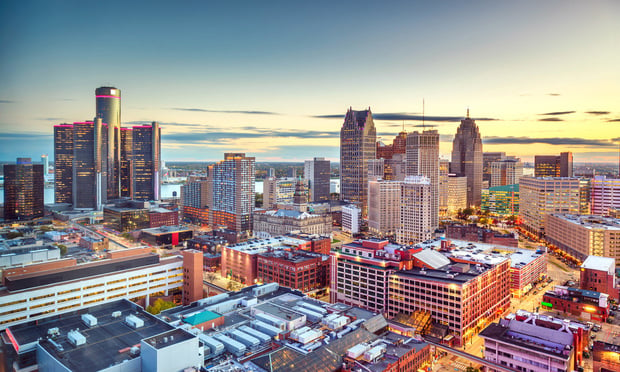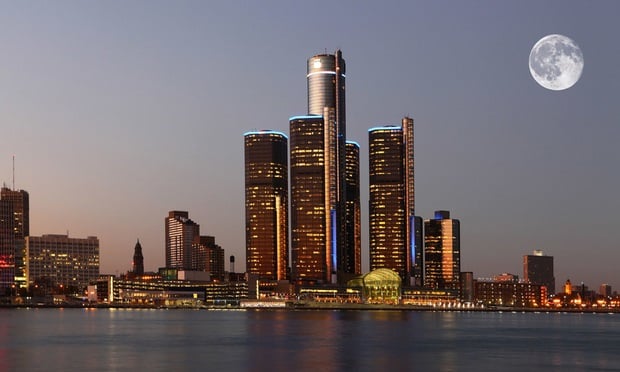DETROIT—This is a city that surprises a lot of people. At the same time the national press has told the story of its decline into bankruptcy, the downtown office market strengthened considerably, and now some experts say it is ready for a major expansion of its tech scene.
"One of the things that people don't realize about Detroit is that the auto industry is heavily dependent on the high-tech sector," Dave MacDonald, an executive vice president of JLL, tells GlobeSt.com. And the recent decision by Ford to invest billions in electric vehicles will further boost the need for tech workers.
Another big factor bolstering technology companies here is the presence of Quicken Loans and its family of companies, which have bought up more than 80 downtown properties, many of them 75 to 100 years old, the type of structure most favored by tech-savvy millennials. "Quicken is really a tech company," MacDonald says, and it has filled these buildings with about 13,000 workers, helping to send the CBD's vacancy rate into a historic plunge.
And last month Rocket Fiber, a Detroit-based fiber-optic provider that is part of Quicken's family of companies, has just activated an internet fiber ring for the city's downtown that at an affordable price offers connections 1,000 times faster, MacDonald says. In its latest report on the US technolgy sector, US Technology Office Outlook, JLL compares it to "the Google Fiber model that spurred business and startup activity when it deployed in Kansas City."
"It's absolutely amazing," MacDonald adds. "It's creating a real strong interest among tech users," from freelance individuals to the big corporate users such as Quicken.
And even though office rents have climbed about 20% in the last 18 months, the market remains incredibly cheap, another positive attribute for tech start-ups. In fact, although Detroit scored near the middle of the pack in JLL's study when it comes to start-up opportunities, it was rated the lowest-cost option, roughly one-third the cost of San Francisco.
"Detroit right now is considered a very cool place to live," especially by the highly sought after millennial demographic, says J.P. Champine, a Detroit-based vice president. The multifamily market in and around the CBD is hovering near full-occupancy, and the demand has even begun to spread into adjacent neighborhoods such as Corktown, "where we are seeing a lot of loft conversions." And even though many of this vast city's neighborhoods struggle with disinvestment, in the downtown "rental rates have gotten high enough to support new construction."
Want to continue reading?
Become a Free ALM Digital Reader.
Once you are an ALM Digital Member, you’ll receive:
- Breaking commercial real estate news and analysis, on-site and via our newsletters and custom alerts
- Educational webcasts, white papers, and ebooks from industry thought leaders
- Critical coverage of the property casualty insurance and financial advisory markets on our other ALM sites, PropertyCasualty360 and ThinkAdvisor
Already have an account? Sign In Now
*May exclude premium content© 2025 ALM Global, LLC, All Rights Reserved. Request academic re-use from www.copyright.com. All other uses, submit a request to [email protected]. For more information visit Asset & Logo Licensing.







